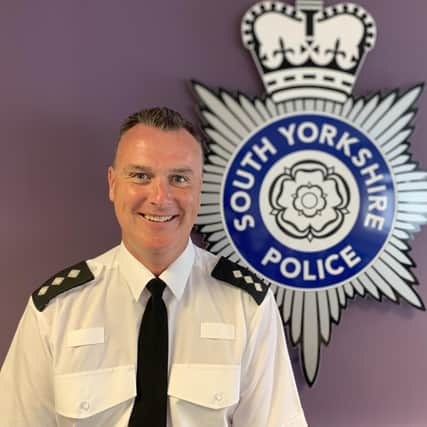Children as young as 15 help monitor sensitive police work


Stop and search checks on members of the public have been controversial for decades because of the way statistical information suggests minority communities are more likely to be targeted for attention than white residents.
The South Yorkshire force has been working on a long-term basis to help ensure the tactic - which helps officers take drugs, weapons and other criminal paraphernalia off the streets - are carried out correctly.
Advertisement
Hide AdAdvertisement
Hide AdThat has involved the adoption of scrutiny panels, made up from members of the community, who examine samples of ‘stop search’ checks to pore over whether officers involved have followed strict rules.
Until recently, those panels were dominated by white, middle-aged people but because checks are carried out predominantly on young people, they have worked to expand the reach of the panels’ membership, with young people from the age of 15 upwards now involved, along with a wider mix of ethnic backgrounds.
South Yorkshire Police now has many new officers, due to a large recruitment campaign, and training has been improved to help ensure they know how to conduct stop and search checks correctly.
They must activate body-worn cameras while the check is in progress, and complete electronic forms so the outcomes can be accurately logged.
Advertisement
Hide AdAdvertisement
Hide AdAt present, around 30 checks a day are carried out, with around one in three of those resulting in police action.
In terms of population size, black people are most likely to be subjected to a stop-search, with proportionally 9.7 stops for every 1,000 residents between October last year and February.
For white people, the figure was 2.5, but translated into actual numbers officers searched 3,097 white people, compared to 251 black people.
Chief Insp Gareth Thomas is South Yorkshire Police’s lead officer for stop-search and said: “If we didn’t have stop and search powers, we would have more drugs and knives on the streets.
Advertisement
Hide AdAdvertisement
Hide Ad“We need to re-assure our communities about why we do stop-searches. It is hopefully bringing trust and confidence isn the community that we don’t just stop people on a whim.”
South Yorkshire’s success rate was higher than the national average, he said, with officers frequently action on information from the public.
ReplyForward